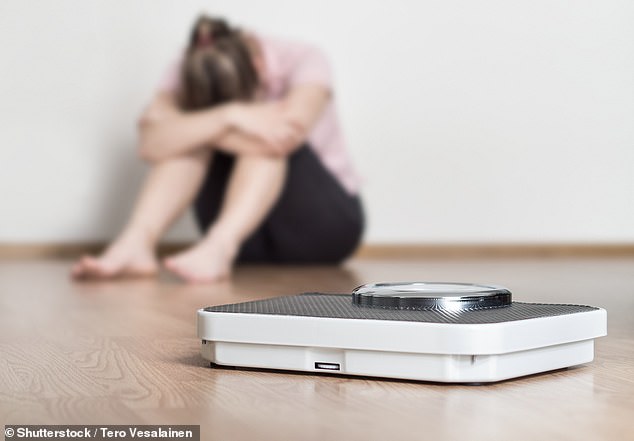Childhood eating disorders have doubled in less than a decade, damning new figures show.
More than 10,600 children in England were waiting to start treatment during the last school year.
This figure represents an increase of more than 5,000 compared to 2016/2017, when 5,240 children were left in the queue. Some have even suffered delays of more than a year.
Experts today described the figures as “shocking” and warned that early intervention to prevent children developing eating disorders should be the Government’s “absolute goal”.
This comes after separate research this month also showed that watching just 10 minutes of TikTok videos can negatively affect a woman’s body image.
In England, more than 10,600 children were left waiting to start treatment during the last school year. This is an increase of more than 5,000 compared to 2016/2017, when 5,240 children were left in the queue. Some have even suffered delays of more than a year.
New figures from the House of Commons Library, obtained by the Lib Dems under freedom of information laws, found that 12 per cent of children were now waiting more than three months for an appointment.
Three years ago, this figure was only one percent.
NHS guidelines state Children should not wait more than four weeks to start treatment and no more than one week after an urgent referral.
However, the longest time a patient spent on the waiting list was 378 days at Coventry and Warwickshire Partnership NHS Trust, the data showed.
This figure stood at 174 days at Cornwall Partnership Foundation NHS Trust. In comparison, in 2019, the longest waiting time was 66 days and in 2022, 249 days.
So far this year, children in some trusts have waited up to 175 days to receive treatment, after being assessed and diagnosed.
Previous research has found that girls are four times more likely to suffer from an eating disorder than boys.
The figures reflect worsening mental health performance more generally, with waiting lists soaring since the pandemic as increasing numbers of children seek help.
Liberal Democrat MP Wera Hobhouse, who chairs the all-party parliamentary group on eating disorders, said The timesMany young people with an eating disorder only get help when their eating disorder is so severe that they need to be hospitalized. From then on, recovery can take years.
‘Early intervention must be our absolute goal to address this misery.
‘Not only to prevent this unbearable suffering in the first place, but also to free up resources in the NHS by keeping people out of hospital and giving them stable lives in communities where they can thrive.’
She added: “That’s why we want to make sure every child has someone to turn to for help with their mental health, from introducing a dedicated mental health professional in every school to establishing drop-in mental health centres in every community.
“Through early intervention we can ensure that children receive the support they deserve before it is too late.”
Suzanne Baker, from the Royal College of Psychiatrists’ Faculty of Eating Disorders, also said: ‘These figures sadly reflect what we have been hearing on a daily basis for quite some time.
‘Families are crying out for support when access to treatment is so hugely problematic.
‘Eating disorders are treatable diseases, and early intervention and evidence-based treatment are key to good outcomes.
‘However, these figures show a shocking reality, which is that the risk of suffering from chronic diseases increases over a long period of time.
“It is indescribable to understand the devastation it causes to the entire family unit to be left with little to no medical support for a child so sick.”
Experts have also repeatedly expressed concern about the fact that The impressionable minds of children are easily influenced by social trends.
Much of this increase was also recorded during the Covid pandemic, with some commentators suggesting that isolation due to lockdowns and increased online social interaction may have led to introspection or self-doubt among children.
Earlier this month, Australian researchers found that watching even 10 minutes of TikTok videos can negatively affect a woman’s body image.
Experts at Charles Sturt University in New South Wales surveyed 273 women aged 18 to 28 about their body image and beauty standards, before splitting them into two groups.
The former viewed eight-minute compilations of TikTok videos that included those glorifying eating disorders, dubbed “pro-anorexia” content.
The other eight-minute compilation included videos about nature, cooking and comedy.
Although both groups subsequently reported a decrease in body image satisfaction, those exposed to pro-anorexia content saw the biggest drop.
Writing in the diary Plus OneResearchers have warned that young women exposed to pro-anorexia content on TikTok could face a higher risk of developing eating disorders.
In 2023, TikTok was warned that it was not acting quickly enough to strengthen its content policies after a study found that its recommendation algorithm was showing content about self-harm and eating disorders to teens within minutes of them expressing interest in those topics.
This comes after the NHS mental health tsar also warned last month that young women were consuming risky amounts of energy drinks instead of food in a bid to lose weight, amid a rise in the development of eating disorders.
The drinks are often marketed as “healthy” and even sold in gyms, but they are very low in calories and can also suppress appetite if they contain high caffeine content, which eating disorder specialists say makes them vulnerable to “abuse.”
Claire Murdoch, national director for mental health at NHS England, said this week she was “concerned” by the trend, which has echoes of the 1990s trend of consuming large quantities of caffeinated Diet Coke, rather than eating it.
Ms Murdoch also criticised drinks makers for marketing their products to young people as “a quick way to lose weight”.

